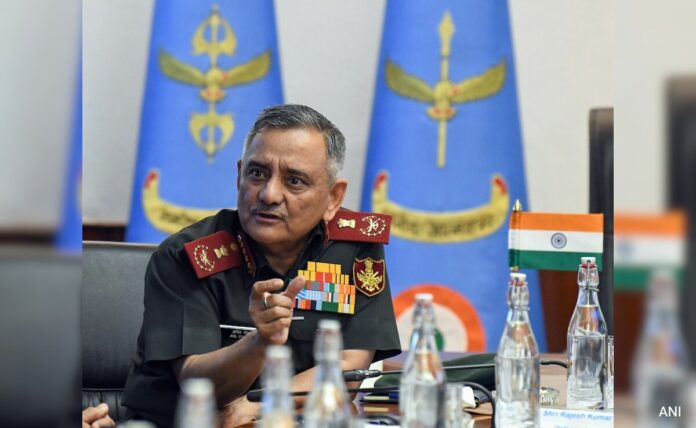Stressing the need for adaptability, CDS called for a “resilient and layered defence” system. (File)
New Delhi:
General Anil Chauhan, Chief of Defence Staff (CDS), addressed an audience at the International Centre on Wednesday, highlighting the transformative changes in modern warfare driven by technological advancements.
Speaking at the C.D. Deshmukh Auditorium, he elaborated on the evolving nature of warfare and India’s preparedness for future conflicts.
CDS Chauhan identified three major technological trends reshaping future warfare: robotics and automation, celerity (speed and velocity), and the intelligentisation of warfare.
“Warfare has always been a contest between humans. One may be better armed, equipped with superior body armour, a sword, a lance, or a modern rifle, or possess better mobility. Yet, at its core, combat has always been between human beings,” he explained.
He warned of an impending shift to human-machine warfare, stating, “We are at the cusp of a new era. While combat today remains between humans, tomorrow it could involve humans versus machines or even machines versus machines.”
Discussing the second trend, ‘celerity,’ he noted advancements in hypersonics, drones, and orbital defence systems.
“The second trend I’ve identified is celerity, which relates to velocity and speed. This is being driven by technologies like hypersonics–glide and cruise–fractional orbital systems capable of circling the globe, and stealth technologies. Small cross-section drones, often deployed in swarm formations, are becoming armed, invisible, inaudible, and undetectable–making them untargetable,” he said.
He further highlighted the third trend of “intelligentisation,” focusing on the digitisation of the battlefield through artificial intelligence and other advanced technologies.
“The third change is the intelligentisation of warfare, encompassing artificial intelligence, machine learning, big data, large language models, supercomputing, and edge computing. The result is the pervasive digitisation of the battlefield,” he said.
Stressing the need for adaptability, he called for a “resilient and layered defence” system.
“You could be targeted anywhere in the world, creating what can be termed as ultimate non-linearity in warfare. This paradigm shift demands a resilient, layered defence, particularly in air defence,” he added.
CDS Chauhan also emphasised the importance of breaking away from the “catch-up game” with advanced militaries.
“We aim to enter the third revolution in military affairs alongside the world’s advanced militaries. Achieving this will require a shift in mindset and new thinking within the armed forces,” he stated.
He concluded by highlighting the shift from “net-centric warfare” to “data-centric warfare.”
“What we are witnessing is a gradual transition from net-centric warfare, which focused on information superiority, to data-centric warfare, where cognitive superiority in decision-making is paramount. The Chinese have described this as a move from information warfare to intelligent warfare, and from net-centric warfare to data-centric warfare,” he said.
(Except for the headline, this story has not been edited by The Hindkesharistaff and is published from a syndicated feed.)




